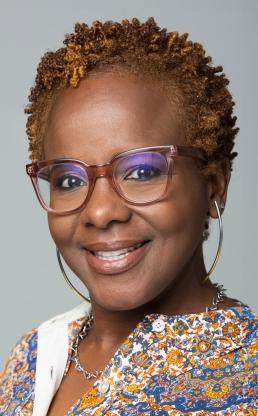
Janella Hinds
The classroom door is just the entry point to our work as academic high school educators. While fidelity to curricula must be prioritized, it is also essential for us to instill confidence in our students and help them create spaces in which they can exercise agency.
We can guide our students to more fully examine who they are and where their passions lie and to recognize that their voice matters. But doing so requires us to bring our truest selves to the classroom. Being authentic and vulnerable allows us to develop relationships based on trust.
Do we present ourselves with our full identity? Do our students see us as empathetic? Can we relate to their experiences and challenges? Do we have more to offer than what’s in the textbook or on the test?
I bring my work as a union activist into the classroom every day, giving students a window into the labor movement through the lessons I teach. When I share my passions with my students in conversations and classroom activities, it gives them space to share their experiences with me.
Our relationships with our students are the bedrock of effective teaching. The trust we secure with our students goes hand in hand with our pedagogical success.
Linda Nieves-Powell, an English as a New Language teacher at Queens HS of Teaching, shares her work as a playwright with her students.
Classroom teaching represents a career change for Nieves-Powell, who is the founder of a 20-year-old theater company and the creator of the off-Broadway hit “Yo Soy Latina” (“I Am Latina” in English). She says her play speaks to young adults by articulating “the yearning to be who you want to be and to live loud and proud.”
Her play’s six characters “represent parts of me,” Nieves-Powell says. “They were all bicultural and not feeling who they needed to be in their own spaces and all spaces. At the end of the play, I let me be who I want to be.”
She says these themes ring true to most high schoolers but particularly resonate with her newcomer students and multilingual learners. She gains credibility when her students become aware of her foundation as an artist with identity issues like their own.
Nieves-Powell can then elicit her students’ stories, anxieties and dreams. She incorporates their experiences in the classroom, engendering learning that becomes student-driven and empowering.
“I’m aware of the journey and how long it takes,” she says.
Emily James, a former high school English teacher and the innovator behind the UFT initiative Students of NYC, provides a digital platform for middle and high school students across the city to express their truths. Their stories, at once unique and familiar, share a common thread: The students express unsolicited praise and affection for the educators who empowered them to define themselves and to use their voice. (Follow @students_of_nyc on Instagram if you haven’t already become a devotee.)
Like students, educators bring to the education space our identities and cultures. Let’s be committed to engaging in this work with our full selves. Be unafraid to show our many dimensions in order to serve as a wealth of knowledge and experience in our classrooms.
Janella Hinds, UFT Vice President,Academic High Schools